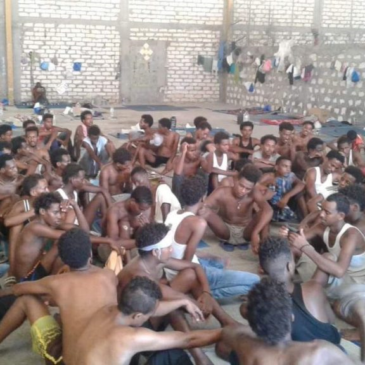The year of 2019: border control, evacuations from Libya and the search for solidarity
In this last article of the year, it is time to look back at some of the events of the past year in the context of forced movement along the Central Mediterranean Route. In 2019, approximately 1,246 people died in the Mediterranean Sea, and even more on land, during their journey to safety. It was a year in which the European Union secured and externalised its borders, making it harder for asylum seekers to enter Europe. It was also another year in which migrants and refugees in Libya were facing inhumane conditions that continue to be unaddressed. Responsibility sharing was a main topic of discussion among EU member states. In addition, a new relocation system was put in place, Salvini made his exit as Italian deputy Prime Minister, and the criminalization of rescue operations in the Mediterranean Sea did not stop NGOs from saving lives.



